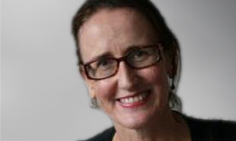HAS anybody ever died at Disneyland? Some claim the theme park shunts its most unfortunate visitors off the premises before allowing them to be declared dead, presumably in an attempt to preserve Disney’s reputation for unsullied cheeriness.
That may be an urban myth but, even if you can’t die at the home of Mickey Mouse, you can definitely catch measles there.
With scepticism about vaccines apparently on the rise, the US experienced a record number of measles cases in 2014, according to the Centers for Disease Control and Prevention.
Already this year, 170 cases have been reported in 17 states, most of them linked to an outbreak at Disneyland in California and most of them — unsurprisingly — in people who had not been vaccinated.
These kinds of outbreaks inevitably focus attention on why people opt not to vaccinate.
Often we end up talking about the so-called antivaxxers, people whose opposition is so entrenched they probably wouldn’t vaccinate under any circumstances.
But, if the aim is to increase vaccination rates, a more productive focus might be on the waverers, the people who could go either way, depending on the information they see and how it is presented to them.
A collection of articles in PLOS Currents investigates the emerging concept of “vaccine hesitancy”, described in an accompanying editorial as an “increasingly pressing and politicized [issue] in many parts of the world”.
Concern about risks posed by new technologies, combined with “a growing lack of public trust in governments and scientific institutions”, leads people to reject advice and “privatize” their decisions on issues such as vaccination, the editorial says.
Vaccine hesitancy is a bit of a grab-bag notion, as another paper in the collection makes clear, encompassing both highly motivated people who have read extensively about the issue and those who simply don’t care enough to make a decision either way.
Further complicating the picture is that people’s attitudes may vary depending on the individual vaccine they are considering.
A parent might, for example, agree to their child being vaccinated against diphtheria but reject the measles vaccine because of a belief it has been linked to autism. (We shouldn’t still need to say this but, no, it hasn’t.)
To study such a mixed group, these authors suggest we need to plot them across two axes, one representing empowerment and active management of one’s own health (dubbed “healthism”), the other, trust in health authorities.
Those who combine taking an active role in managing their own and their children’s health with a distrust of health authorities are a particularly interesting — and challenging — group for vaccination campaigners.
Their investigations into vaccines will likely have led them to “Sciences, quasi-sciences and pseudo-sciences… competing sources that produce a flood of overspecialised, hyper-complex and contradictory findings”, the authors write.
“This relation between empowerment and distrust is … explicitly promoted by some groups critical of vaccines, which claim that ‘trusting blindly can be the biggest risk of all’.”
It’s always puzzled me that people who are so wary of health authorities don’t apply a similar level of scepticism to the scaremongers, but that’s another question.
Empowerment in relation to health is a good thing — it’s certainly the aim of most public health campaigns.
But the challenge — for health authorities and the wider community — is to ensure it is based on the best available information.
Jane McCredie is a Sydney-based science and medicine writer.

 more_vert
more_vert
It is worth reminding ourselves that measles was a very common cause of death in children in the early part of the twentieth century, well before vaccinations were available. Death generally was from pneumonia or encephalitis. While no doubt social factors and nutrition etc played a part , it shows imeasles can be a deadly disease, and it is fair to say that many parents these days do not realise this.
Thanks for the article, Jane. My experience confirms the suggestion that vaccine-hesitancy, and outright opposition, involves a range of motivations. I suspect a significantly large group are vulnerable parents who are struggling with a child with developmental or behavioural difficulties, and looking for an external locus of blame. IN the context of feeling unsupported and disempowered, it is relatively easy for people to take advantage of their vulnerability by creating a supportive (anti-vax) community that gives them emotional and social support by convincing them that their suspicions are right, and that their oppopsition to Big Bad Medicine (or The Government) shows independence of mind and strong advocacy for their children. An approach for these parents might be for medicine or the government to be the source of support, rather than suspicion. For parents worried about autism, it might be useful to re-direct them into a community of parents that is empowered through knowledge rather than suspicion, such as the Autism Science Foundation: http://www.autismsciencefoundation.org/autismandvaccines.html